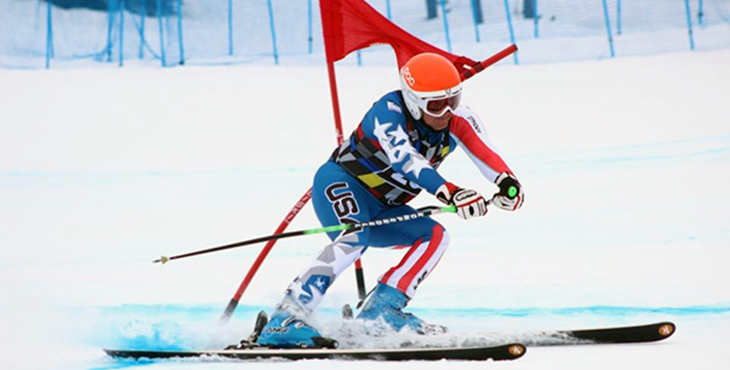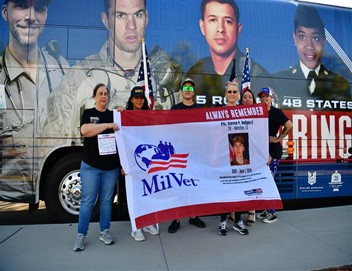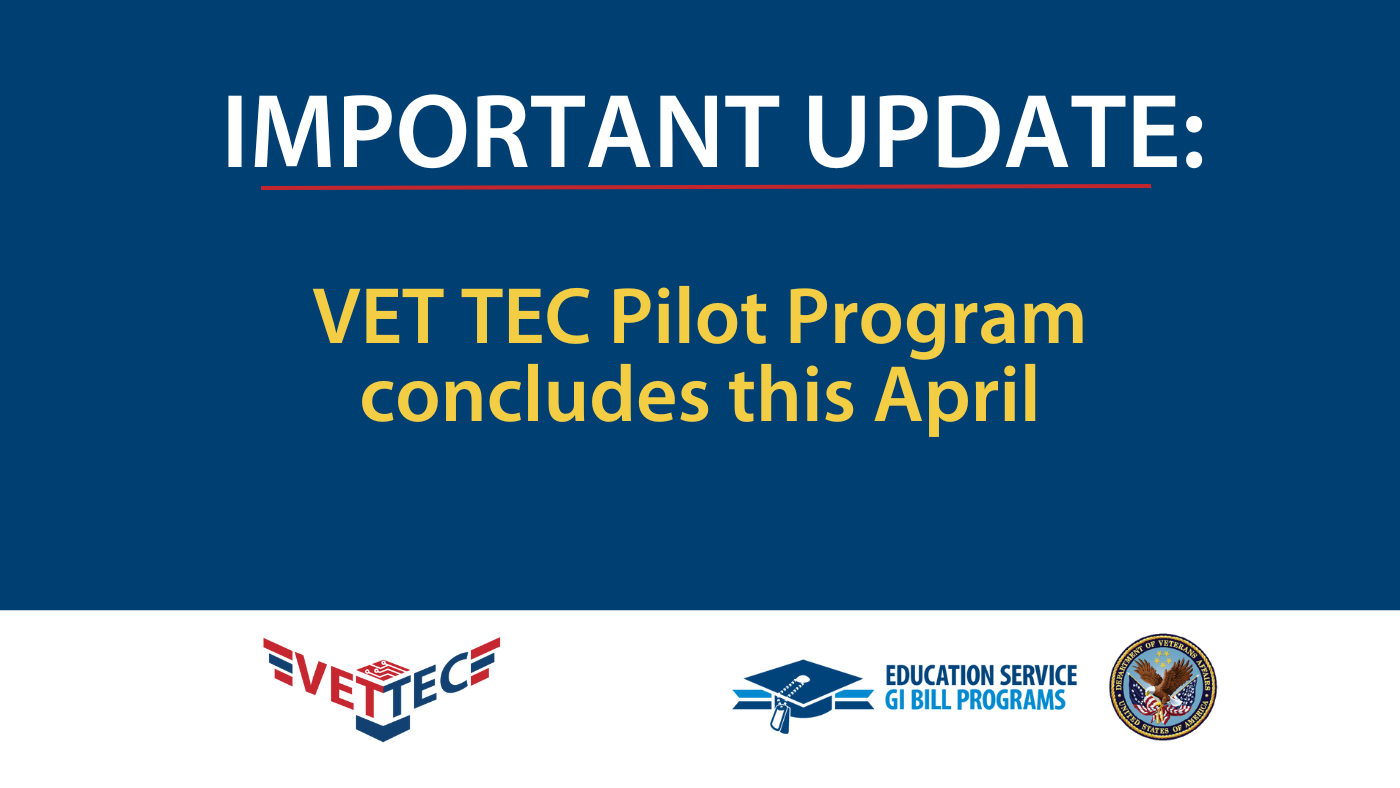I can almost see you right now. You’re sitting on your favorite chair or reading this on your computer with no real plans for today. You served your country, and you suffered a traumatic injury, or life-changing illness or disease because of it. Now, you’re just kind of hanging out, waiting for your next VA appointment and letting life move on without you. I’ve got good news for you. Your time has come. I know because I’ve been there.
When I was injured in Iraq in 2003, I didn’t think it was that severe of an injury. I had ruptured a couple discs, but I didn’t want to leave my fellow Marines, so I just kept pushing forward. However, over the course of the next year the pain in my legs grew so severe that I was popping morphine pills like candy and it wasn’t touching the pain. My doctors finally recommended surgery to remove the discs and fuse my spine with screws, rods and cadaver bone.
When I woke up from surgery the pain in my legs was gone, but I immediately knew something wasn’t right. The doctors were poking my legs with needles from my hip to my ankle and I couldn’t feel anything, nor could I move my legs. In what seemed like an instant, I was paralyzed. I was medically retired from the Marine Corps in 2006, and I returned home to Colorado an empty shell of a man. Soon, it was only the drinking and pills that could help me hide from my depression.
My VA therapist encouraged me to get involved in adaptive sports, and I was amazed at the world of opportunity it opened up for me—both professionally and personally. My adaptive sport journey took off, and so did my rehabilitation. I got involved in skiing at the National Disabled Veterans Winter Sports Clinic and I was immediately hooked. I worked hard and earned a spot on the U.S. Alpine Ski team, even traveling to Russia to represent the United States against the world. In Sochi, I received the ultimate honor of being selected the flag bearer for the opening ceremony. Even now, knowing the rehab process never ends, I am still on my adaptive sports journey. I continue training to keep my spot on the U.S. Paralympic Alpine team, hoping to once again represent my country in Korea in 2018.
Through it all, this is what I’ve learned: adaptive sports can take you from a place where you see no future to a place where you determine your own. But let me be clear – there is no single roadmap to recovery. No one can prescribe a single drug or a single treatment to make you whole again. Your best recovery will come from the methods that work best for you. The sooner you embrace that idea, the quicker you’ll recover.
Another equally important point is that your recovery requires your involvement. It won’t just happen to you. And for those of you who are ready for a challenge – ready to fully engage your rehabilitation and move forward with your life – I’ve got something for you.
VA leads the world in adaptive sports therapy programs. It offers a number of innovative sport therapy programs to help disabled Veterans rediscover their potential and redefine their lives. From their renowned instructional clinics on adaptive summer and winter sports, to their competitive programs for wheelchair Veterans who use wheelchairs for competition, to their partnership with the U.S. Paralympics and community sport programs nationwide, VA has something for everybody.
Adaptive sports and recreation can help you confront challenges and redefine your perceived limits. The path is not always easy – nor should it be – but it certainly is worth the effort. The benefits are detailed in a 2009 study by Disabled Sports USA. The study found that disabled Veterans who participate in adaptive sports have greater independence, more fulfilling relationships, greater job satisfaction and less stress than those who don’t. In other words, disabled Veterans who participate in adaptive sports tend to be healthier and happier.
Overcoming physical challenges doesn’t stop at the gym. That feeling of success and accomplishment can carry over to starting a business, landing a new job, quitting smoking, or setting a personal best on the bench press. Goals keep us moving, and when we’re moving, we focus on what we can do, not what we can’t.
When I was in the Marine Corps, the eagle, globe and anchor were the keys to my identity. I understand what it’s like to very suddenly lose that connection. That is why I’ve made it my mission to share these lessons with a new generation of my fellow warriors.
If you are a disabled Veteran, I challenge you to join me, connect with VA’s adaptive sports programs at www.va.gov/adaptivesports, and redefine your mission.

Topics in this story
More Stories
VA remains open for business and is closely monitoring the Change Healthcare (CHC) cybersecurity incident.
Carry The Load, an organization dedicated to remembering the fallen, will visit 34 VA National Cemeteries traveling 20,000 miles along five separate routes covering all continental 48 states known as the National Relay for Memorial May 2024.
Over the five-year program, more than 14,000 VET TEC beneficiaries completed their program and nearly half have reported finding meaningful employment with an average starting annual salary of $65,000.








I was interested in the “Golden Years”(?) games, but knew I couldn’t afford the trip & time in San Diego. Does the VA or any org help vets with the expenses incurred in these endeavors? Please let me knnow; there’s always next time (hopefully).
dear Jon,
Thanks for this article and the many links. I am strongly working on to have the adaptive sport program to be re-installed in my VA Hospital, Caribbean Healthcare System, San Juan, PR. I was taken off from it on Feb 10 +/-, it’s been almost 2months and I was told that I had to wait 2 more months for an answer. Only an answer. Meanwhile, I have been knocking many doors. It seems that, the wrong ones. Since your article, I believe you can help me, please email me to krcp@outlook.com . In this way I bet we can solve this situation faster. I had been in the adaptive sport program for More than a year,competed in the Chicago and San Antonio Valor Games earning gold and silver medals in many sports. I know the Program works, it got me out of depression, focus in other better than pain. When the Program was canceled I was devastated and only because of my spouse I did not go back to be hospitalized.
Truly thankful
I know of two dishonorably discharged persons (Good republicans), both are got service connected disability from the Detroit Dept. of Veterans Affairs with in 30 days of applying….. One was discharged for drug use started after 4 combat tours. The other for too many blanket parties lost his teeth to a baseball bat!!!!!! And honorably discharged people only get the run around from the Detroit Dept. of Veteran affairs … Seems that the people who decides who gets service connected disability dislike veterans that served their country honorably!!!
So it is the policy of the VA to serve dishonorably discharged persons better and faster than an honorably discharged people! Do you feel that a dishonorably discharged person should come before an honorably discharged people when it comes to getting service from the VAs!!!
This Detroit office is the same office that lost my brother-in-laws file.. He served in Vietnam.. Ammo dump guard he was spared with AO daily,,,, He died in 1989 at the age of 38!!! VA still claims that AO had nothing to do with his early death!!!
The VA just give us Veterans the run around until we give up or just die!!!!
The A$$ holes told my sister that it was her tuff luck for marring him!!!!
And I found out the AMVET Service Rep is in the same Detroit, MI office as the person who denies your claims.. I was told by this person that Asbestosis is not a disease!!!!!